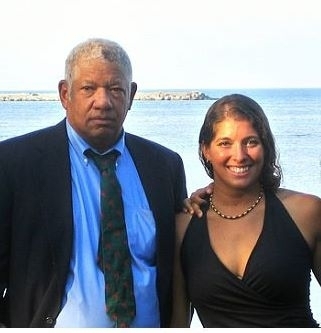Visit the Series Homepage
Vermont Reads 2011: "To Kill A Mockingbird"
 (Host) All this week, VPR is examining the role of race in Vermont as part of a series inspired by "To Killing a Mockingbird." The Pulitzer Prize-winning novel was chosen by the Vermont Humanities Council this year for Vermont Reads, its annual statewide reading program.
(Host) All this week, VPR is examining the role of race in Vermont as part of a series inspired by "To Killing a Mockingbird." The Pulitzer Prize-winning novel was chosen by the Vermont Humanities Council this year for Vermont Reads, its annual statewide reading program.
Last year’s census showed that Vermonters who claim to be two or more races make up the largest minority population in Vermont.
About 2,500 of those people identify themselves as both white and African-American.
When the Jones family moved to Addison County 30 years ago, they were the only multi-racial family in town.
We sat down with two of the family members recently. First we hear from 29-year-old Adrienne Raphael, one of the family’s two daughters, who moved back to Addison County after leaving for seven years:
(Jones) "My mother is from outside of Detroit, sort of a WASP-y background, and my father is black and he’s from outside of Boston.
My husband and I got married, he’s also from Vermont and we bought a house. I had a lot of anxiety moving back here. For me there were a lot of reasons, but the lack of diversity was one of them. I wanted my kids to grow up in place where there was more diversity because that was something that I really felt was missing. It was also hard being the only person with a black father.
There’s of course the, when you’re young you want to fit in" thing. But also in the early 80s to mid 80s there really were not that much diversity in Vermont at all; it’s really changed a lot.
I think there was a lot of ignorance and racism and I would say it was more direct when I was younger, in elementary school I think when you get older, because we live in small communities here, people know. They know that you’re biracial so they’re not going to say things to your face. But as I got older it was more like if I was at a party and people didn’t know, overhearing things.
You wouldn’t know that I was black if you met me, unless you saw me next to my dad, who I look like. It’s interesting. I think that biracial people all have very different experiences and that’s an interesting thing too because you get to hear things that you wouldn’t hear otherwise I don’t experience the racism that I would experience if I looked more black.
(Host) Geoffrey Jones is Adrienne’s father.
(Jones) "Back when I came to Vermont the census said there were 500 people of color in the State of Vermont, which certainly felt to be true when I got here. I was the first black trooper in Vermont. We have tried as a family to consciously to come here and accept how people are here in the sense that we don’t post and I think that was recognized by some people.
The kids went to local schools, turns out the local schools were excellent, one went to Yale, one went to Brown, they had really good marks. But did they always get a fair shake, no I’m quite certain of that. How do I put this? My wife who is white always expects stuff to be on the level, and I’m black so I expect stuff to be not on the level, and that’s an absolute truth. If I get stopped out here by a cop on the way home, I won’t expect it to be on the level, she will expect it to be on the level, doesn’t mean that everything is everything, but that’s an expectation we have, the kids are aware of that. And they’ve got that little piece that says the last thing you do before you go out is you put on your suit of armor. And you keep your eyes open. They know that.
The further I get away from the influx of people, the more it’s still Vermont, and the more it’s like what I came for, plus there’s that wonderful thing where we were always outsiders, kind of. But as my kids grow up here and stay here and as people know them. Since then we’ve become a little bit less outsiders and more and more locals whose cars won’t run."
(Host) That was Geoffrey Jones.
VPR’s series, Vermont Reads, To Kill a Mockingbird, continues tomorrow morning with a look at perceptions around racial profiling.